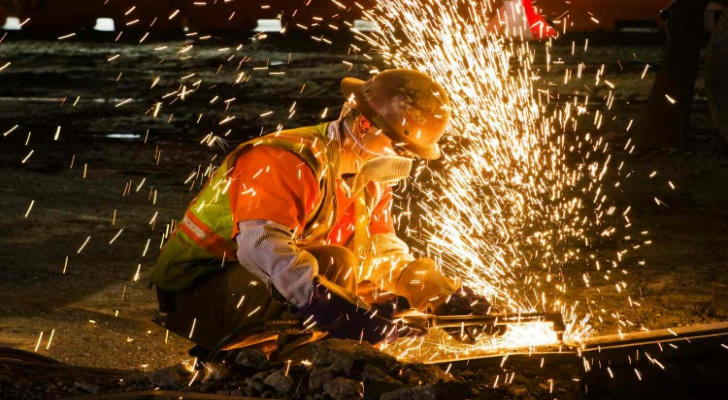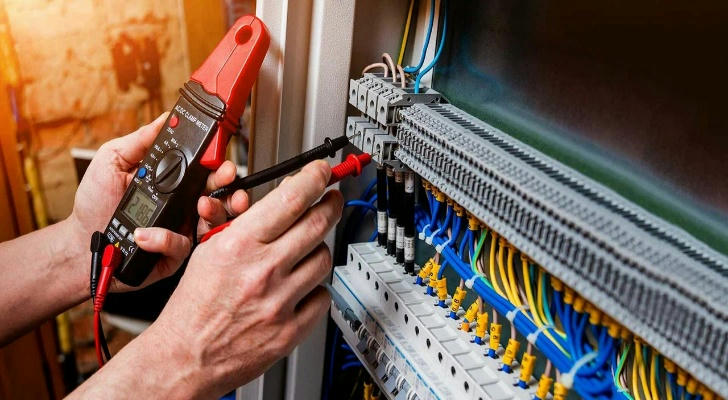Electrical and Welding: How Skilled Trades Can Achieve Success
In today’s rapidly evolving job market, skilled trades like electrical work and welding have proven to be vital pillars in maintaining and growing industries. These professions offer job stability, lucrative pay, and the satisfaction of hands-on work. However, like any career, success in electrical and welding fields requires a combination of technical proficiency, certifications, and continuous professional growth.

1. The Power of Electrical Work: Wiring the Future
Electrical work encompasses a broad range of tasks, from residential wiring to complex industrial systems. As our reliance on electricity increases, so does the demand for skilled electricians. The beauty of this trade lies in its variety of specializations, from installation to maintenance, allowing workers to tailor their careers to their interests.
Key Strengths of Electrical Work:
Job demand: With the growing demand for renewable energy and smart technologies, electricians will continue to be in high demand.
High earning potential: Skilled electricians, especially those with specialization or management experience, can earn competitive salaries.
Career stability: The electrical industry has long-term job security due to its necessity across all sectors, from residential homes to commercial buildings.
For instance, a residential electrician may handle the installation of electrical systems in new homes. In 2024, a national report from the U.S. Bureau of Labor Statistics showed that the median annual wage for electricians was $60,040, with the highest 10% earning over $96,000. These figures reflect the financial benefits of entering this field, which does not always require a four-year degree.
Excel in electrical work by:
Obtaining necessary certifications (e.g., National Electrical Code (NEC) certification)
Gaining experience through apprenticeships and hands-on training
Staying updated on new technologies, such as solar panel installations and smart home wiring

2. Welding: The Art of Joining Metals
Welding, like electrical work, is an essential skill across various industries, including manufacturing, construction, and aerospace. It involves fusing metal parts together using high heat and pressure, requiring both precision and expertise. Welders must have a thorough understanding of different materials and welding techniques to create durable and safe structures.
Key Strengths of Welding:
Wide range of industries: Welders work in a variety of industries, from constructing bridges to manufacturing vehicles and airplanes.
High skill demand: As industries continue to develop, the need for skilled welders grows—especially those who can work with newer technologies and materials.
Hands-on creativity: Welding allows professionals to engage in highly skilled and creative work, often contributing to the foundation of major infrastructure projects.
In fact, a study conducted in 2023 found that welding is an essential skill in sectors like aerospace, automotive, and shipbuilding. The American Welding Society reports that welding jobs are expected to grow by 3% by 2029, particularly in the oil, gas, and infrastructure sectors.
Excel in welding by:
Mastering various welding techniques (e.g., MIG, TIG, Stick welding)
Earning certifications such as AWS (American Welding Society) certification
Continuously learning about new materials and welding technology

3. Electrical and Welding: Combining Trades for Enhanced Career Opportunities
While each of these careers offers substantial potential, combining knowledge of both electrical work and welding can open up new doors for professionals. These trades complement each other well, particularly in industries like construction, manufacturing, and energy.
For instance, a welding technician with electrical knowledge may work on specialized projects, such as creating electrical panels or wiring complex machinery. Combining expertise in both areas could significantly enhance your job marketability.
Real Case: How a Skilled Worker Can Thrive in Construction
Consider the case of a worker in the construction industry who is both a certified electrician and a welder. Such a combination allows the worker to take on more complex projects, such as electrical installations in high-rise buildings or the welding of structural beams that include electrical components. The worker is more likely to land higher-paying roles and have greater job security because they possess a diversified skill set.
Example: In 2024, a worker who had both electrical and welding certifications was hired as a lead technician for a large-scale infrastructure project, where they were responsible for installing electrical systems while also overseeing welding tasks. This role paid 15% more than a standard electrician or welder alone, underscoring the added value of this combined skill set.
4. Best Paths to Success in Electrical and Welding Trades
| Scenario | Trade | Advantage |
|---|---|---|
| Residential electrical work | Electrical | Quick entry, stable demand |
| Heavy machinery construction | Welding | High demand in manufacturing |
| Specialized infrastructure projects | Electrical + Welding | High-paying roles, diverse skills |
| Industrial machinery maintenance | Welding + Electrical | Comprehensive technical expertise |
By diversifying skills, such as learning both welding and electrical work, workers position themselves to thrive in high-demand areas. Additionally, modern industries often require integrated skill sets, and workers who can operate across different domains are particularly valuable.
5. The Future of Electrical and Welding Careers: Continuous Learning and Adaptation
The future of skilled trades like electrical work and welding depends on adaptability and the continuous pursuit of new knowledge. As technologies such as automation, robotics, and renewable energy become more prevalent, these professionals will need to stay ahead of trends and technological advancements.
For electricians, this means becoming proficient in the installation and maintenance of smart grid systems, solar panels, and energy-efficient systems. For welders, learning how to work with advanced materials and new welding technologies, such as robotic welding, will be essential.
Key Takeaway: Success in electrical and welding careers comes not only from mastering the basics but also from staying current with industry trends and advancing skills through certifications and on-the-job experience.
As industries evolve and new technologies emerge, the most successful electricians and welders will be those who combine traditional skills with innovative techniques, continuously learning and adapting to the changing needs of the job market.

In conclusion, both electrical work and welding offer stable, rewarding careers that are crucial to infrastructure and industry. Whether you are just starting or looking to advance in your career, mastering these trades can pave the way for long-term success. The key is to continuously build your skill set, earn certifications, and adapt to industry trends, allowing you to stay competitive and successful in the ever-evolving job market.
